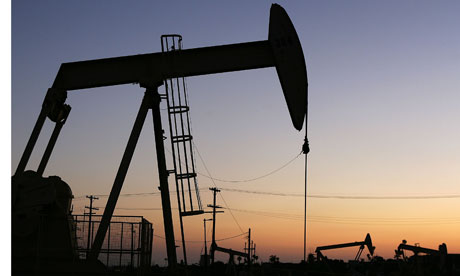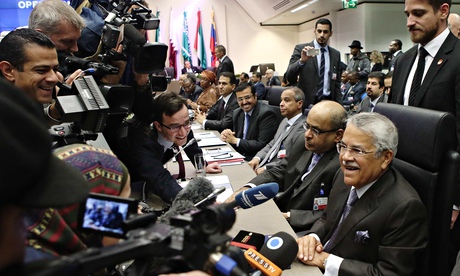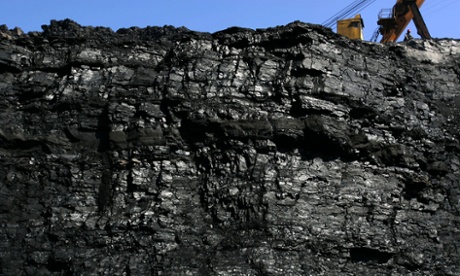The oil price tumbled by as much as $3.25 a barrel on Tuesday after the world's biggest commodity trader called the top of the market for crude and a range of other commodities – at least for the time being.
Goldman Sachs advised its clients to sell their investments in oil, copper, platinum and cotton, arguing that record levels of speculative trading in crude have pushed their prices up so much in recent months that "in the near term, risk-reward no longer favours" holding those commodities.
After a 25% rise in the value of the CCCP basket (comprising crude oil, copper, cotton, soya beans and platinum) in four months, investors' best bet is to quit while they are ahead, the bank said.
Goldman has a huge influence in the market and the bank's recommendation was backed up by another influential player. The International Energy Agency (IEA) warned that crude was now so expensive that it was hitting the global economy, reducing the demand for oil and, in turn, other commodities. This is likely to result in a "less palatable route to price moderation", the IEA said.
Meanwhile, concerns about the economic outlook for China and Japan dragged commodities down further after the International Monetary Fund warned that potentially damaging credit and asset bubbles could be forming in China, while Japan's Nuclear and Industrial Safety Agency raised the severity level of the country's nuclear crisis.
Brent crude dropped by as much as 2.6% to $120.73, before rising slightly to stand at $120.94 in late afternoon trading. Copper fell by more than 2%, platinum declined by about 1% and cotton by nearly 3%. Gold fell by 1%, sugar by nearly 2% and wheat by almost 3%.
In a note to clients, Jeffrey Currie, global head of commodities strategy at Goldman, said that its decision in December to advise clients to invest in the CCCP basket had been "driven by an expectation of rising demand from the leading emerging market players".
He went on: "While that did play out early this year in the non-energy sections of the basket, it was overtaken by a supply shock driven by events in the Middle East. That has had the effect of introducing more downside risk into the trade, particularly given record levels of speculative longs [trading] in crude."
Up to $27 of the price of every barrel of oil is down to speculators, who buy oil as an investment rather than to use it, according to calculations by Reuters. The value of outstanding oil futures contracts hit a record $26.7bn this month, according to Bank of America Merrill Lynch's hedge fund monitor, as speculators bet that the oil price rise would continue.
Tony Dillon, an oil specialist at ICIS Heren, the energy researcher, said: "The Goldman note has certainly had an effect. Oil has been rising on the back of events in Libya and Japan, and people are now saying, 'Hang on, maybe we overdid it.'
"Crude oil prices lead the way and are closely linked to other commodities in general," Dillon added.
Although the CCCP basket still has the potential to rise in value over the next 12 months – if emerging economies perform well and stoke underlying demand – in the short term Currie is recommending that his clients sell out.
"Not only are there now nascent signs of oil demand destruction in the US, but also record speculative length in the oil market, elections in Nigeria and a potential ceasefire in Libya," says Currie, adding that these are offsetting the upward pressure exerted on prices by fears that the unrest in the Middle East could spread.
Copper and platinum prices "face near-term headwinds" as the high price of oil reduces demand for products and, in turn, their raw materials, Currie said. At the same time supply problems stemming from the Japanese crisis have reduced manufacturers' output, hitting demand particularly for platinum, which is a key component in car manufacturing. The high price of copper means it too is "vulnerable" Currie adds.
The CCCP basket has a 40% weighting in oil, 20% in copper, 20% platinum and 10% in cotton. The other 10% is in soya beans, which Goldman expects to keep rising, as China feeds its growing number of pigs and other livestock. Three years ago Goldman rattled investors by predicting an oil "super-spike" that would push prices to $200 per barrel by the turn of the decade.











